The Golden Fleecing

Brief Synopsis
Cast & Crew
Leslie Fenton
Lew Ayres
Rita Johnson
Lloyd Nolan
Virginia Grey
Leon Errol
Film Details
Technical Specs

Synopsis
Henry Twinkle, the junior employee of a life insurance company, is granted a raise in salary when he sells a $50,000 life insurance policy to Gus Fender, of Fender Enterprises. Henry's sweetheart, Mary Blake, who forced the milquetoast Henry to demand his raise, delights at his accomplishment and quits her job in anticipation of their wedding. Shortly thereafter, newspaper headlines reveal that Fender is a racketeer, and a $25,000 reward is posted for anyone who captures or kills him. When word of Fender's criminal character reaches Henry's boss, Buckley Sloan, he loses his temper and orders Henry to keep Fender alive. Meanwhile, Lila Hanley, Fender's moll, purposely gets a speeding ticket in the small town of Upper Tuxton in order to land herself in the same jail cell where Fender is being held on a minor charge. There Lila, Fender and his henchmen, "Fatso" Werner and "Happy" Dugan, concoct a plan to raise the needed $50,000 to bail out Fender. Their scheme involves luring an honest but dumb individual to announce that he has captured Fender, and then have him turn over the reward money to them so that they can use it as bail. Lila finds just the right dupe in Henry, and she immediately calls him with directions to Upper Tuxton. After convincing Henry that the safest place for a wanted man is a jail cell, Fender fabricates the story of his capture for Henry to tell the police. In exchange for the reward money, Lila offers Henry some stock that she knows is worthless. Henry receives the reward money, but blunders once again when he returns to Upper Tuxton and hands Fender a check instead of cash. Fender instructs Henry to cash the check at a nearby bank, but after he does so, he hands the money over to Happy, who disappears with the cash. Soon after Mary confirms that Henry's stock is worthless, the stock makes an unexpected recovery and suddenly becomes valuable. When Sloan learns of Henry's stock market success, he calls him "the genius of the stock market" and promotes him. To celebrate, Henry goes on a shopping spree and then showers Mary with gifts. Misfortune returns to Henry when Lila demands that he return her stock and Mary sues to block Henry from taking away their assets. Mary is then kidnapped by Lila, Fatso and Happy and held captive until she agrees to drop her suit. Mary is rescued, however, when Henry enters the room where she is being held, knocks Lila's gun out of her hand and escapes with his sweetheart. Some time later, Henry returns to Upper Tuxton with $150,000 in cash, less the $25,000 that Mary kept, and turns it over to Fender. This time, however, it is Fender who is striken with misfortune when a smoldering cigar ignites the cash and prevents him from posting bail.

Director
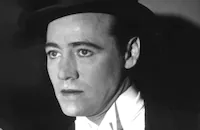
Leslie Fenton
Cast

Lew Ayres

Rita Johnson
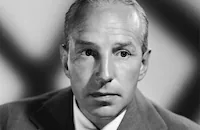
Lloyd Nolan

Virginia Grey

Leon Errol
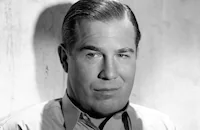
Nat Pendleton
George Lessey

Richard Carle
Ralph Byrd
Marc Lawrence
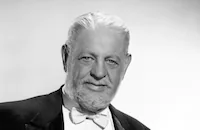
Thurston Hall

James Burke
Spencer Charters

William Demarest
Eddie Dunn
Emory Parnell
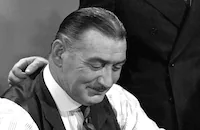
Edward Keane
Bryant Washburn Jr.
Tom Herbert
Harry Tyler

Arthur O'connell
Cyril Ring
Gladys Blake
Claire Owen
Edward Kilroy
Hal Le Seur
Ernie Alexander
Rudolph Steinbeck
Jay Eaton
Frances Morris
Claude King
John Dilson

John Hamilton

Maude Eburne
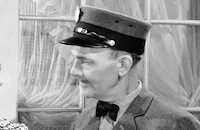
John Butler
Paul Phillips
Herbert Vigran
Fred Kelsey

James Flavin
George Guhl
Jack Gardner
Ralph Mccullough
Leigh De Lacy
Jack Mulhall
Ray Walker Wilson
Jack Daley
Fred Graham
Pat Gleason
Horace Macmahon
Crew
Tom Andre
Daniel B. Cathcart
John Fante
Frank Fenton
Cedric Gibbons
Conrad A. Nervig
Marion Parsonnet
Laura Perelman
S. J. Perelman
Lynn Root
Edgar Selwyn
Douglas Shearer
Leonard Smith
David Snell
Dolly Tree
Edwin B. Willis

Film Details
Technical Specs

Articles
Virginia Grey (1917-2004)
She was was born in Los Angeles on March 22, 1917, and was exposed to the film industry at a very young age. Her father, Ray Grey, was a Keystone Cop and acted in several other of Mack Sennett's comedies with the likes of Mabel Normand, Dorothy Gish and Ben Turpin. When her father died when she was still a child, Virginia's mother encouraged her to join the acting game and audition for the role of Eva for Uncle Tom's Cabin, a big budget picture for Universal Studios in the day. She won the role, and acted in a few more pictures at the studio: The Michigan Kid and Heart to Heart (both 1928), before she decided to temporarily leave acting to finish her schooling.
She returned to films after graduating from high school, and after bouncing around Hollywood doing bits for various studios, she hooked up with MGM in 1938. Her roles in her first few films were fairly non-descript: In Test Pilot and Ladies in Distress (both 1938), she did little more than look pretty, but in the following year she had scene-stealing parts in The Women (upstaging Joan Crawford in a delicious scene as a wisecracking perfume counter girl) and as the suffering heroine in Another Thin Man (both 1939).
Despite her versatility (she could handle comedy or drama with equal effectiveness), MGM would cast her in some above-average, but hardly starmaking movies: Whistling in the Dark, The Big Store (both 1941), and Tarzan's New York Adventure (1942). She left MGM in 1943 and became a freelance actress for several studios, but her material as a leading lady throughout the '40s were mediocre: Swamp Fire, House of Horrors (both 1946), and Mexican Hayride (1948) were sadly the more interesting films in her post-MGM period. But by the '50s she was a well-established character actress, appearing in fairly big-budget pictures: All That Heaven Allows, The Rose Tattoo (both 1955), Jeanne Eagels (1957).
In the '60s, Grey turned to television and found work on a variety of hit shows: Wagon Train, Peter Gunn, Bonanza, My Three Sons, I Spy, and several others; plus she also captured a a couple of notable supporting parts in these films: Madame X (1966), and Airport (1970), before retiring completely from acting in the early '70s. She is survived by her sister, Lorraine Grey Heindorf, two nieces and two nephews.
by Michael T. Toole

Virginia Grey (1917-2004)
Quotes
Trivia
Notes
According to Hollywood Reporter pre-production news items, M-G-M originally set James Stewart for a leading role and tried to negotiate with Columbia for Jean Arthur to co-star.














